Start with “stupid” and end in success… What does it take to complete a 145-mile race?
Ben Davies and Richard Wilcox ran the Grand Union Canal Race in 42 hours - part one of the 400-mile, three race Canal Slam
The first thing you need to complete the initial 145 mile run of a three race series covering 400 miles is to be “stupid enough to take it on”.
Ben Davies and Richard Wilcox, two ultra running enthusiasts from the Midlands, ticked that box when the completed the Grand Union Canal Race at the end of May.
The pair battled sleep deprivation, a dark patch that will mean Hatton Locks forever haunts their dreams, acid reflux and hallucinations to finish in 42 hours and 22 minutes.
It was the first race of the Canal Slam, which features two 145 mile races and one of 130 miles.
Their second 145-miler will come in the form of the Kennet & Avon Canal Race - which runs from London to Bristol - on July 28, before they finish the challenge with the mere 130 mile Leeds and Liverpool Canal Race on August 26.
Their goal is even more remarkable considering Ben and Richard have each only been running for a little over three years.

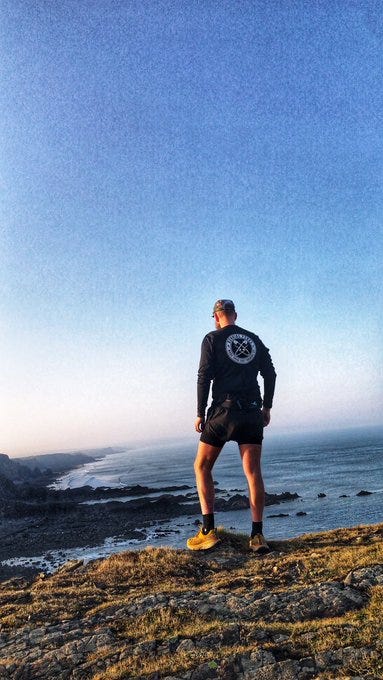
Ben took to the sport when his wife started a running fundraiser for Birmingham’s Children’s Hospital after his young niece sadly died.
He began supporting her with her running - but initially hated it.
Struggling with his mental health, he suddenly stumbled across ultra running – and without stopping along with the way to tick off all the distances in-between he started clocking up big numbers and competing in ultras.
His new found love of running saw him complete last year’s Grand Union Canal Race, and when he decided to take the next step up to take on the Canal Slam he knew just the person to call.
Richard, who has crewed for Ben at previous races, started his running career with a bang when he decided to swap up the usual Couch to 5k starter-pack for a goal of going from Couch to 100 miles within a year.
He said the mindset to run large distances had “always been there'“ and just needed to be brought to the surface.
“It’s not to say you don’t have to work at it,” he added.
“Every race is different and if you approach it with a blasé attitude then you are going to set yourself up to fail.
“I’d not done 145 miles before and I hadn’t done 100 miles for over a year, so this was about jumping straight back in there, believing in the training and in myself.”
The pair are different when it comes to their styles of running.
Whereas Ben is used to running along canals and countryside trails, Richard can usually be found up the side of a mountain.
He said this challenge persuaded him to change the way he trains, with strength training playing an increasing role.
“I needed to strengthen all the ligaments in my legs,” he said.
“The run is totally flat, save for the respite of a couple of locks, for hours on end. I wanted to combat the tiredness and the risk of injury later in the race.”
As a result he did two gym sessions a week for six months, one on upper body strength and the other on legs.
“I feel stronger,” he said. “And I think it has helped me in every bit of running. Once I’ve finished these races, I don’t think I’ll change back.”
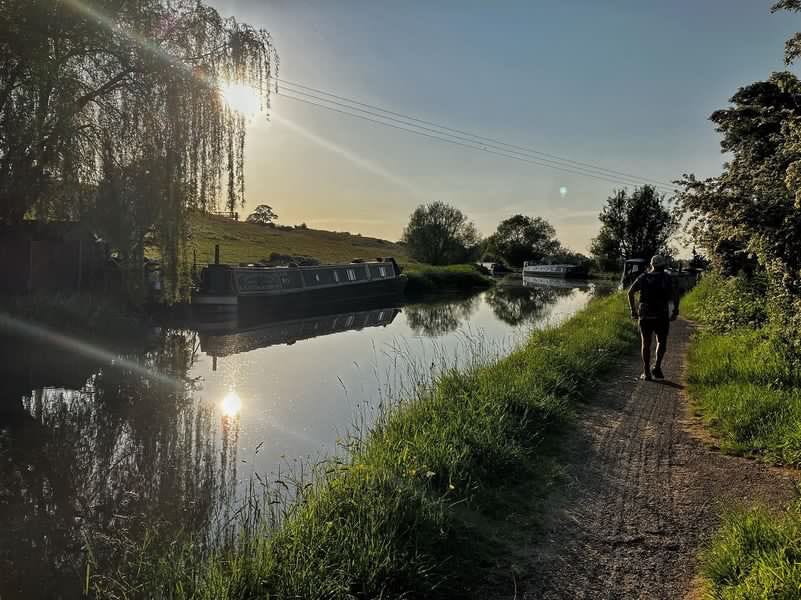
Ben had also focused on strength training prior to the race, but - having recently become a father for the first time - hadn’t managed to run as much as he would have liked.
“That was my main concern,” he said. “I was quite stressed as prior to last year’s race I had done so much running.
“I have always neglected strength work, so this year the gym leant itself to me. It is just round the corner so if I ever got a call to go home I was only two minutes away, rather than if I went running.
“But once we started running on the day all of the stress went away. I went into it like a coiled spring, ready to put down some big miles.”
He said the strength work really paid off in the latter stages of the race “where normally everything starts to breakdown”.
That’s not to say there were no hard periods as the run neared its conclusion.
Richard said: “We both went through some dark times.
“We got to Hatton Locks and I really needed a sleep, or at least to just have a lie down, rest everything and reset my mind.
“Coming into those locks was a dark point for me.
“We all approach it differently. I tend not to show it as much. I will be chatty all the way through a race.
"You can only get yourself out of those places, even when you are running with someone else. You have to maintain discipline to help yourself out.”
Ben said where Richard will keep talking, he needs to focus on everything around him.
“I will start focusing on how the light is hitting the trees or how it is hitting the water, just to take my mind completely away from what is going on.
“I will struggle if someone tries to communicate with me at that time. I will end up getting to a point where I’m starting to be ok, but someone talking will pull me out of my zone.
“We had 20 minutes completely resting at Hatton Locks and I ended up leaving there with a niggle in my knee. I was kicking myself for stopping, but I knew if I hadn’t there was a potential we would have become separated and not seen each other to the finish line, which wasn’t what we set out to do.
“I was going through a low patch. Everything goes through your head and you are kicking yourself for it.
“But Rich came up with this little plan of picking a spot and running to it. We’d pick a bridge then run to it, then another spot and walk to it. It just took my mind out of what was going on and gave me something to focus on and aim at.
“Within half-an-hour we were back chatting, having a laugh and a good time again.
“It really changed the mood.”
Also on Running Tales:
One of the more unusual highlights of the race came in the form of some apples.
Ben and Richard said they both tend to stock up on sweets, sugary snacks and drinks full of electrolytes.
By the final miles of the race, their sticky nutrition plan was started to cause problems.
“Both of us struggled with acid reflux, and felt we were going to be sick due to the amount of sugar we had been consuming and the heat of the day,” Ben said.
The situation was only saved at a refuelling stop when Ben discovered some apples he had packed and forgotten about.
“That apple was the nicest thing I had ever tasted,” he said.
“Most of my nutrition is like a five year old’s birthday party,” Richard said. “It’s all snacks and high amounts of sugar, or maybe pastries and cocktails sausages.
“This opened my eyes on different strategies of fuelling.”
Not heading off too fast and dealing with sleep deprivation and hallucinations are further ‘complications’ of taking on such a long race.
Richard said he hadn’t gone in with a plan, but “knew I needed to be conservative at the start.
“As we got further into the race we had good little spurts, where we got a bit faster.
“Most of the time I think I’m going to be conservative and am bombing at mile 10, so this was a good breakthrough for me.
“Sleep deprivation hits people in different ways.
“I started to hallucinate. I was seeing young lads with caps standing by the side of the canal, and when I got a bit closer it was just trees.
“I had been there before in races, so I knew what was going on.
“It’s something you have to manage. I do recommend people, if they can, to have five or 10 minutes just to reset and rest from everything you are doing. It does work.
“Just those five minutes can invigorate your mind again.”

And what was it like finally crossing the finish line?
Ben said: “It was a massive relief. Going into the Canal Slam, the first race was always going to be big set-up for the others.”
Richard added: “When I finished, I was so tired going over that line.
“I said to Ben about a mile from the end, are we gong to run and he just said ‘no, I’m done’. We both laughed and we just walked across that line.
“But inside I was ‘we’ve done it, we’ve done it’.”
One down, two to go.
Thanks as ever for reading and listening to Running Tales. We couldn’t do this without your support - please back us to keep going by…





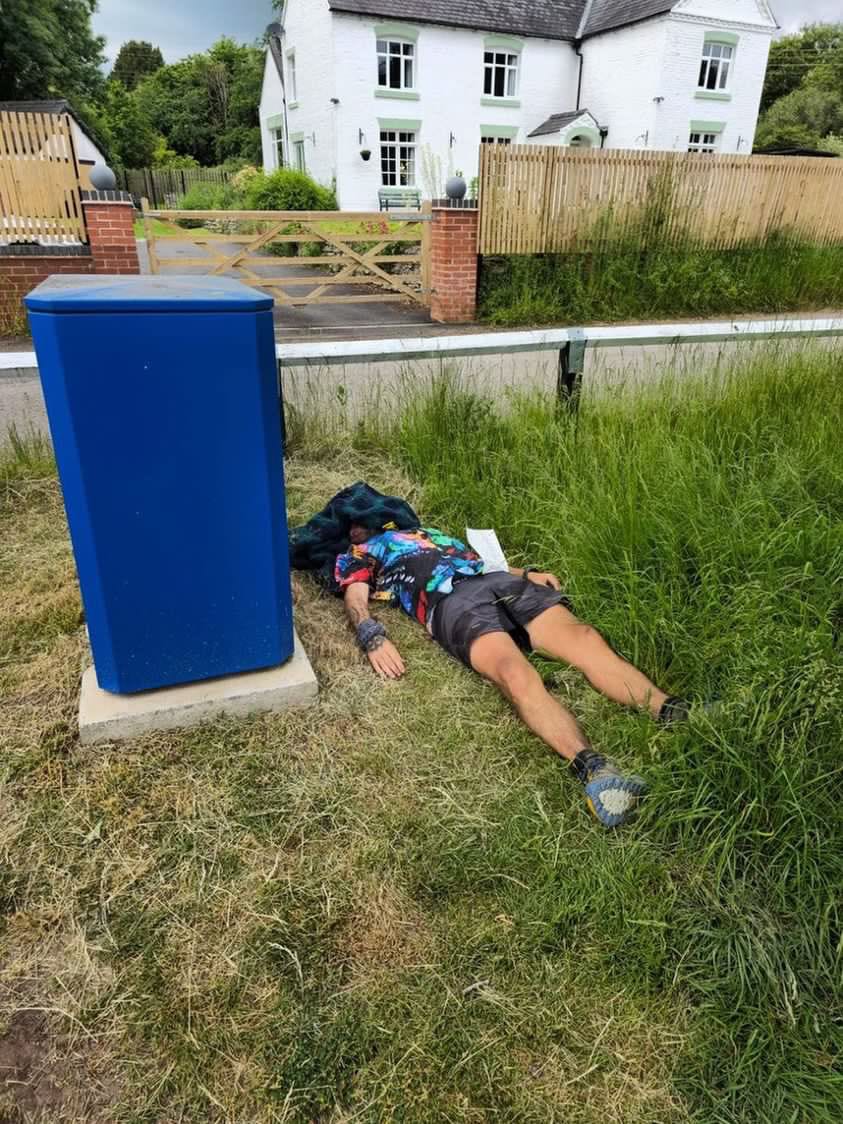
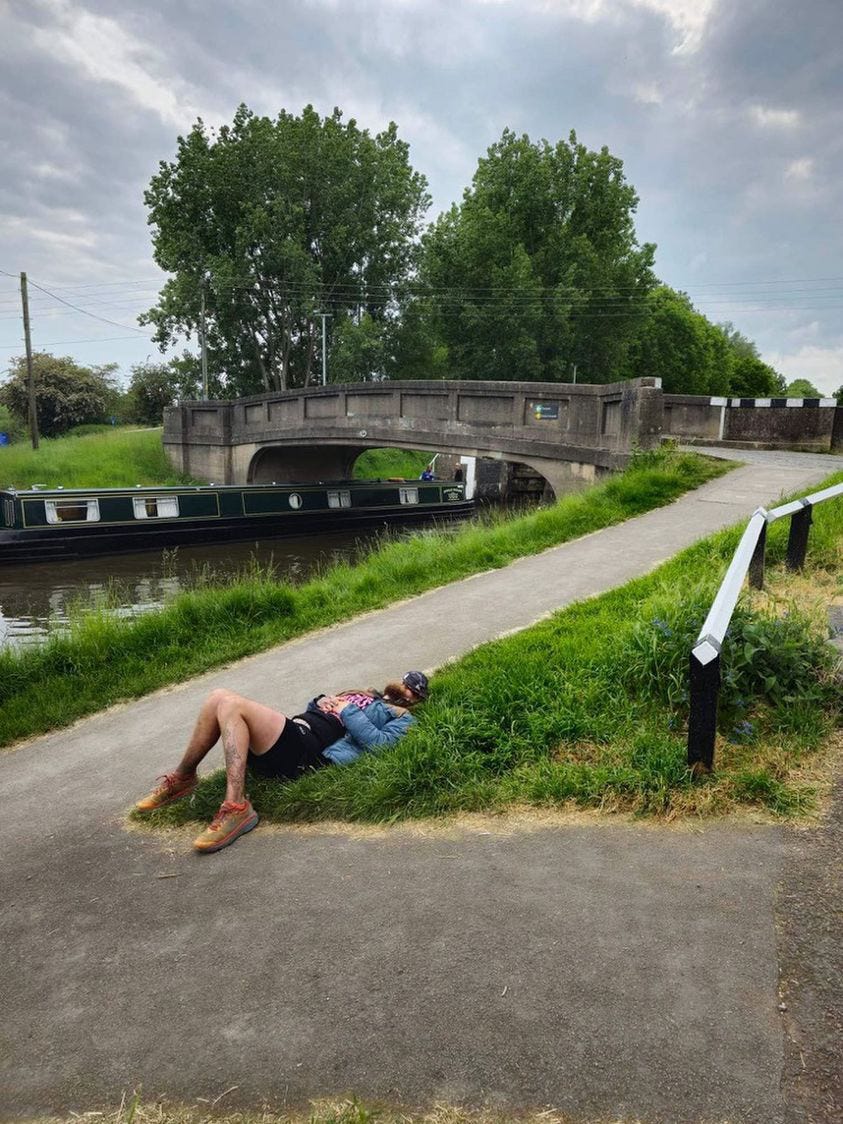
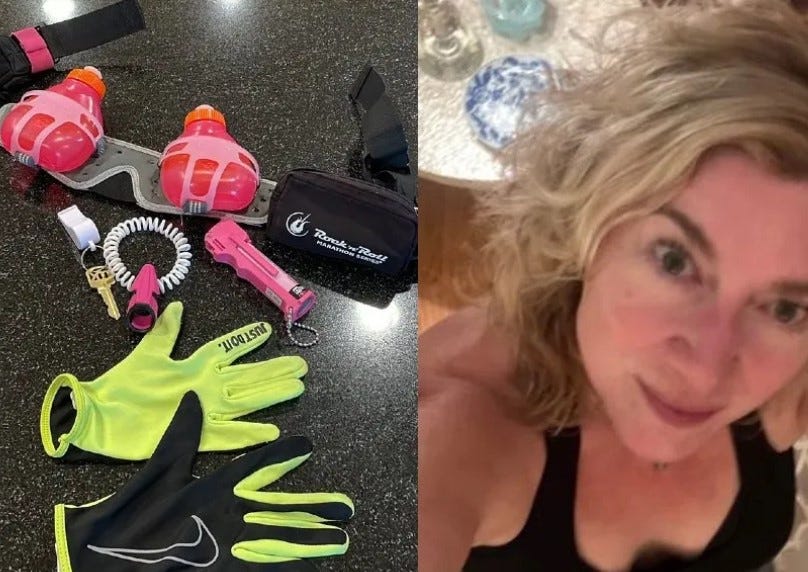

That was a great read 🤘💪